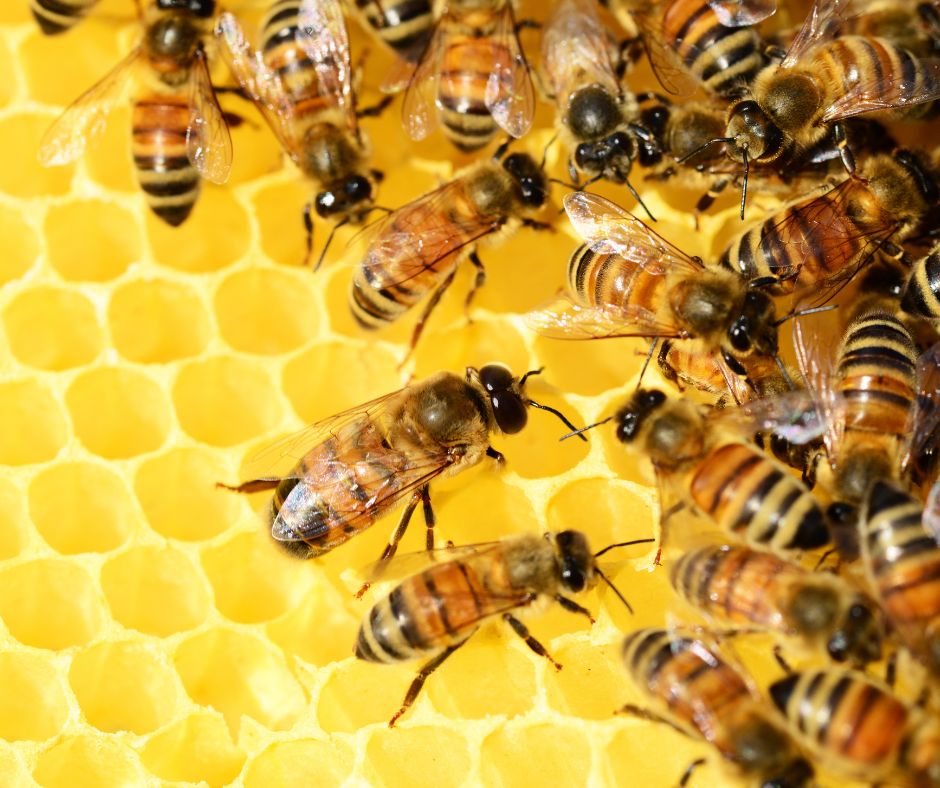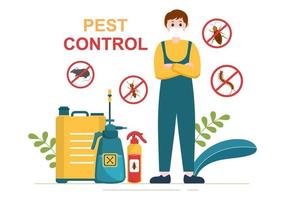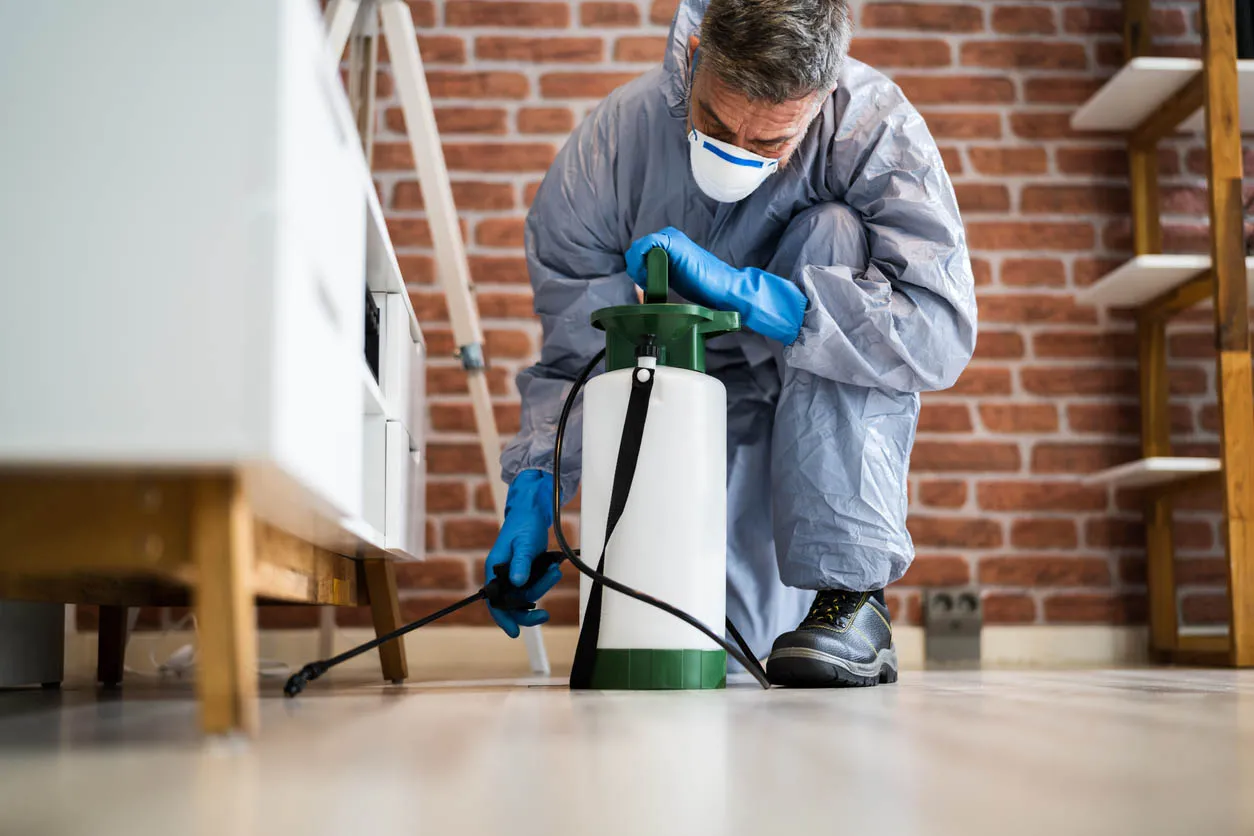Expert Commercial Pest Control Service in Port Charlotte
Expert Commercial Pest Control Service in Port Charlotte
Blog Article
Comprehensive Overview to Comprehending Pest Control Approaches and Their Treatment
Understanding bug control methods is essential for reliable management of unwanted organisms that present dangers to health and wellness, farming, and building. What aspects should be taken into consideration when selecting the ideal parasite control method for a specific scenario?
Overview of Parasite Control Approaches
Parasite control approaches include a selection of methods created to handle and get rid of unwanted organisms that can hurt human health, farming, and home. Reliable insect management is crucial for preserving the integrity of ecological communities and making sure the safety of food products. These methods can be extensively categorized right into three main approaches: cultural, mechanical, and organic controls.

Social control entails customizing farming methods or ecological conditions to minimize pest facility and reproduction. This method consists of plant rotation, sanitation, and choosing pest-resistant plant ranges. Mechanical control depends on physical barriers or devices to stop parasite access or directly eliminate them. Instances include traps, webs, and hand-picking dangerous pests.
Organic control uses natural killers, parasites, or microorganisms to manage pest populaces. This technique stresses ecological equilibrium and can include introducing helpful insects, such as ladybugs or predative nematodes, to take care of parasite visibility.
Integrated pest management (IPM) combines these approaches, making use of a holistic approach that stresses prevention, surveillance, and liable administration. By utilizing a blend of these approaches, insect control can be a lot more lasting and efficient, decreasing reliance on chemical interventions while securing human health and wellness and the environment.

Chemical Bug Control Solutions
A range of chemical parasite control options are offered, offering effective options for handling pest populations when various other techniques might fall short. These remedies largely consist of insecticides, herbicides, fungicides, and rodenticides, each designed to target certain bugs while lessening damage to non-target organisms.
Insecticides are particularly reliable versus a variety of insects, consisting of ants, cockroaches, and termites, and can be identified as call or systemic agents. Contact pesticides eliminate parasites on contact, while systemic pesticides are soaked up by plants, making them toxic to pests that feed upon them. Herbicides are utilized to control unwanted plants, whereas fungicides are vital for taking care of fungal diseases that can damage crops and decorative plants.
In addition, incorporated pest management (IPM) principles should be used, combining chemical services with cultural, mechanical, and biological approaches for sustainable pest control. This alternative approach not only enhances pest management performance however additionally decreases potential environmental impacts connected with chemical use.
Organic Pest Control Methods
Biological pest control techniques supply an ecologically pleasant option to chemical methods by utilizing natural predators, bloodsuckers, or microorganisms to manage insect populations. This technique leverages the eco-friendly connections in between organisms, promoting a balanced ecological community while lessening chemical residue in the atmosphere.
One of the most usual biological control approaches includes the intro of all-natural enemies. For circumstances, ladybugs are employed to manage aphid populaces, while parasitic wasps can target caterpillars and various other insects. These all-natural predators efficiently decrease pest numbers without hurting advantageous pests.
Furthermore, microbial agents such as bacteria, fungis, and infections are utilized to infect and kill specific pests. Bacillus thuringiensis (Bt), a naturally taking my sources place microorganism, is extensively utilized to control caterpillars and other larvae, showcasing the performance of microbial insect control.

Physical and Mechanical Methods
Often utilized in integrated parasite management techniques, physical and mechanical methods act as efficient tools for managing insect populaces without using chemicals. These techniques depend on physical barriers, traps, and various other mechanical devices to stop or remove pests, making them eco pleasant options.
Physical approaches include using barriers such as insect netting, displays, or row covers that literally block pests from accessing plants. This is specifically helpful in farming settings where plant defense is essential. In addition, habitat control, such as removing particles and standing water, can decrease parasite breeding sites, consequently lessening infestations.
Mechanical methods encompass catches, which can be made to record specific pests. Sticky catches and pheromone catches are common examples that lure and preserve bugs, promoting monitoring and control. Vacuuming is another mechanical strategy, efficient for removing bugs from indoor settings, particularly in situations of infestations.
Preventative Insect Management Strategies
Efficient preventative parasite administration techniques are vital for maintaining healthy and balanced settings and decreasing pest-related issues before they arise (Pest Control in Port Charlotte, FL). These methods concentrate on positive actions that minimize the likelihood of bug infestations by resolving the source

An additional essential technique entails correct landscaping practices (Pest Control in Port Charlotte, FL). Maintaining greenery cut and away from structures can reduce harborage locations for pests. Applying integrated bug monitoring (IPM) techniques that include keeping an eye on pest populaces and employing biological controls can Read More Here cultivate a well balanced ecosystem that naturally subdues pest numbers.
Education and learning and training for team and residents on acknowledging early indications of parasite activity are also essential parts of an efficient preventative program. By promoting an environment of understanding and vigilance, organizations and homeowners can substantially improve their parasite administration initiatives and protect their rooms versus future invasions.
Conclusion
To conclude, effective insect control needs a complex technique that integrates chemical, navigate to this website organic, and mechanical approaches. Using an Integrated Insect Administration (IPM) framework enables the lasting administration of bugs while minimizing environmental effect. Preventative methods better boost the effectiveness of these approaches, ensuring long-lasting security of health, agriculture, and building. Inevitably, a comprehensive understanding of these diverse pest control strategies is important for accomplishing successful outcomes in insect monitoring initiatives.
Report this page